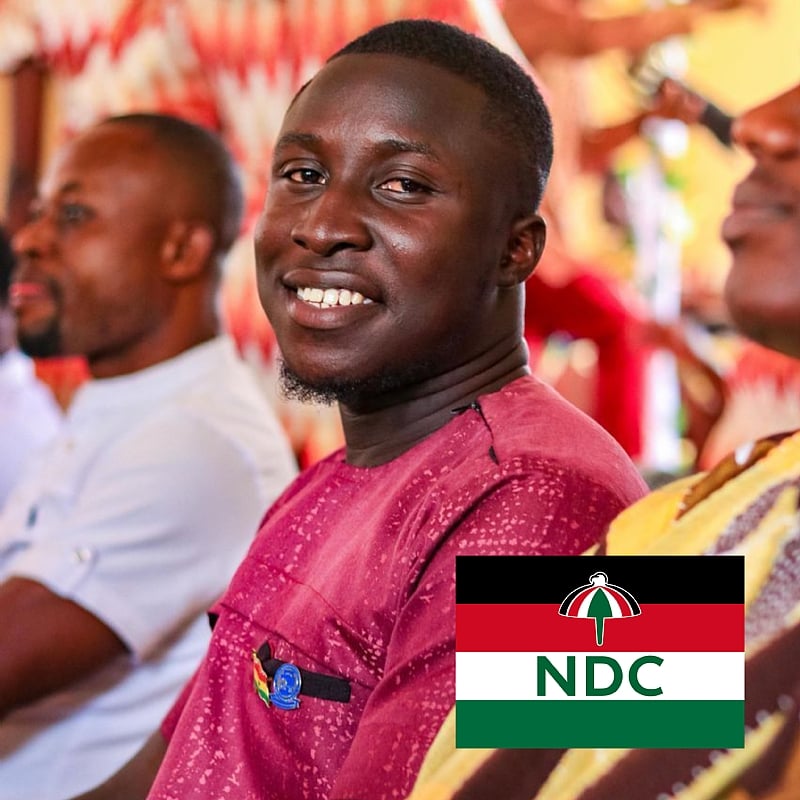The former Communications Officer of the Tertiary Education Institutions Network (TEIN) of the National Democratic Congress (NDC) at Accra Technical University (ATU), Derrick Nana Asare, has publicly affirmed his support for the NDC’s economic management, drawing a stark contrast with the previous New Patriotic Party (NPP) administration. In a statement released on May 7, 2025, Mr. Asare lauded the NDC’s proactive approach to tackling the nation’s economic challenges, citing initiatives such as debt restructuring, targeted social interventions, and measures to stabilize the Ghanaian cedi. He argued that these actions demonstrate a more disciplined and strategic economic vision compared to the previous administration, which he characterized as having left a legacy of unsustainable debt and economic instability. Mr. Asare’s endorsement comes during a period of significant economic recovery efforts following the COVID-19 pandemic, marked by high inflation and an ongoing International Monetary Fund (IMF) program.
Mr. Asare’s statement emphasizes the NDC’s commitment to restoring economic confidence, supporting local businesses, and safeguarding livelihoods. He highlights the government’s proactive measures to address the economic fallout from the pandemic and the global economic downturn, suggesting a more prudent and responsible approach to fiscal management. He criticizes the previous NPP administration for what he perceives as excessive borrowing and mismanagement, contributing to the economic difficulties the country currently faces. According to Mr. Asare, the NDC government has demonstrated a clearer understanding of the economic challenges and is implementing practical solutions to navigate the complexities of the post-pandemic economic landscape.
The backdrop of Mr. Asare’s endorsement is a nation grappling with the combined effects of the pandemic, global economic uncertainties, and the implementation of IMF-backed reforms. The Ghanaian economy, like many others globally, experienced significant disruption during the pandemic, impacting businesses, employment, and overall economic activity. High inflation rates have added to the economic strain, eroding purchasing power and impacting livelihoods. The IMF program, designed to support economic recovery and stability, involves a series of reforms and fiscal adjustments, which often present challenges in the short term.
The NDC government maintains that its economic policies are yielding positive results, pointing to improved growth forecasts and efforts to reduce the fiscal deficit. These indicators, according to the government, signify progress towards economic recovery and stability. The government argues that its interventions, including the debt restructuring efforts and social programs, are designed to mitigate the negative impacts of the economic challenges on vulnerable populations and to create a more sustainable path towards economic growth. The ongoing debate about the effectiveness of these policies reflects the complex and multifaceted nature of economic recovery and the different perspectives on the best approaches to achieve it.
Mr. Asare’s endorsement of the NDC’s economic management adds another voice to the ongoing national conversation about the state of the economy and the direction of economic policy. His statement reflects the political dynamics at play, with different actors offering contrasting narratives about the government’s performance and the effectiveness of its economic strategies. The debate is likely to continue as the government navigates the complexities of the IMF program, addresses inflation, and seeks to stimulate economic growth. The public discourse surrounding these economic issues is crucial for ensuring accountability and informing policy decisions.
In conclusion, Mr. Asare’s statement represents a vote of confidence in the NDC government’s economic management at a critical juncture for the Ghanaian economy. His critique of the previous administration and praise for the current government’s initiatives highlight the ongoing debate about the best path towards economic recovery and stability. As the nation continues to grapple with the aftermath of the pandemic and the challenges of the IMF program, different perspectives on economic policy will continue to shape the national conversation. The effectiveness of the government’s policies and their impact on the lives of Ghanaians will ultimately determine the long-term trajectory of the nation’s economic future.


